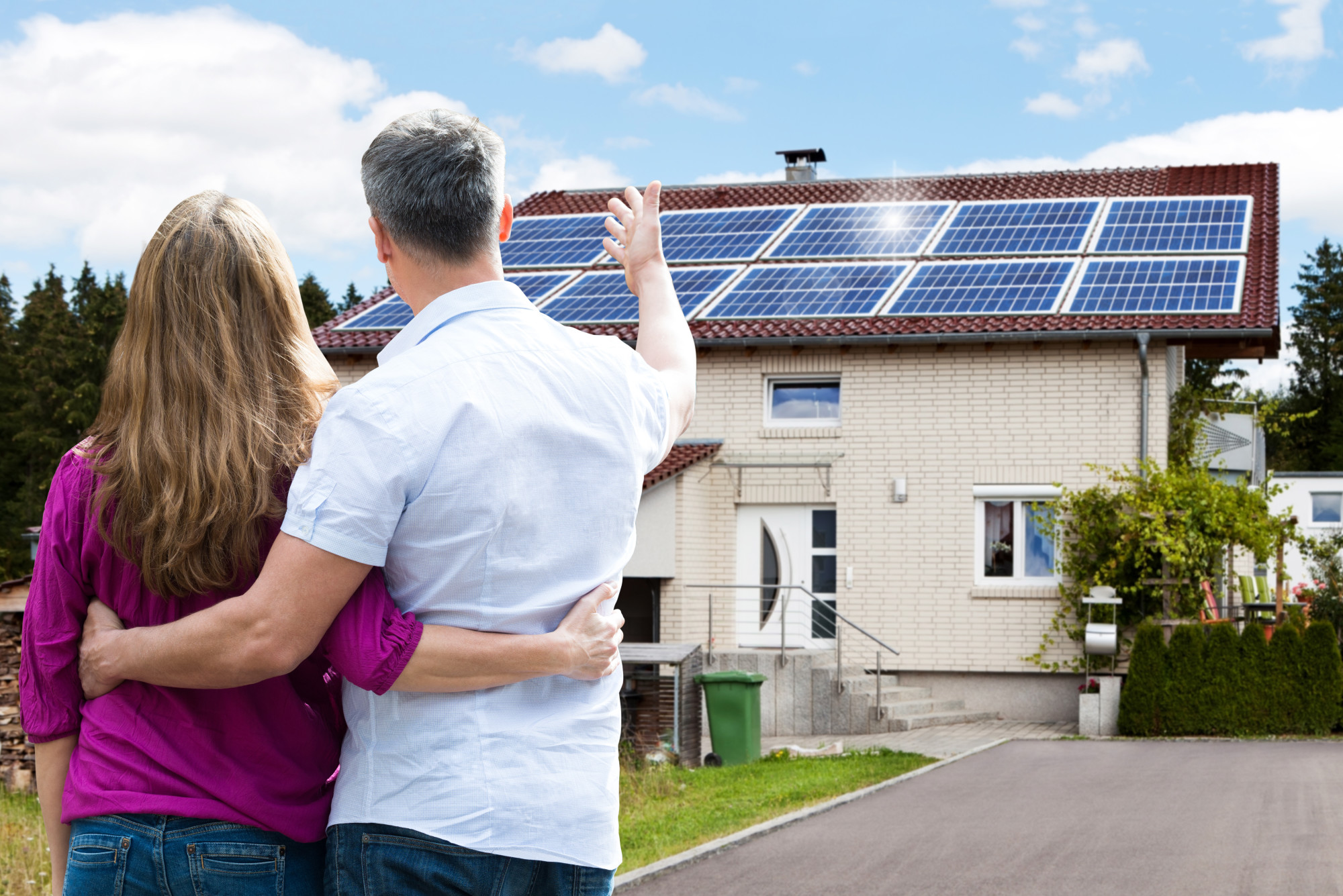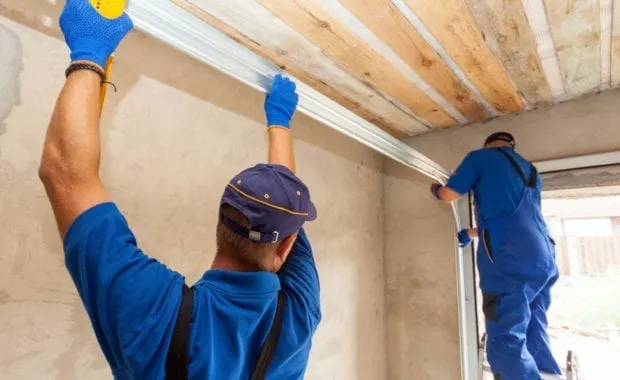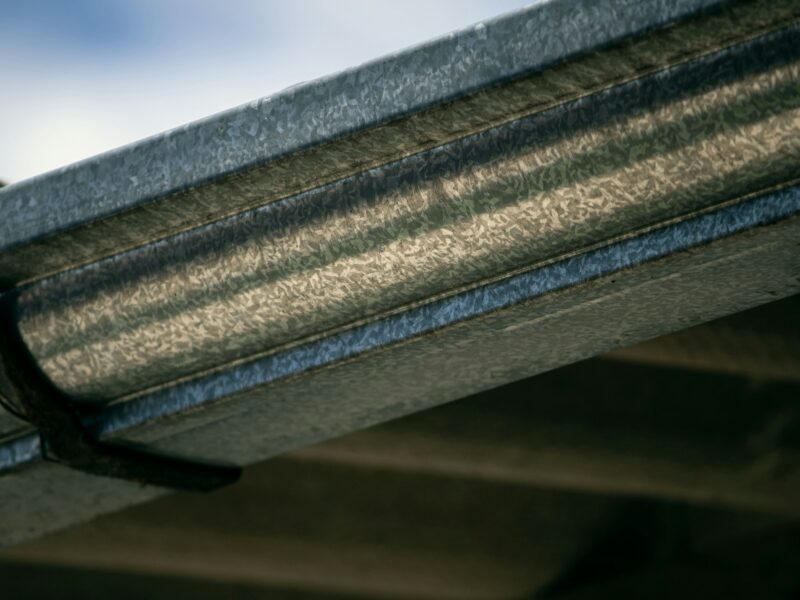Solar panels have become more affordable in recent years but still might be too expensive for the average homeowner in Idaho. However, there are a few more affordable options. These can make the solar panel installation cost more manageable for most homeowners.
Solar energy can reduce your monthly energy bill by nearly 20 percent, but solar panels have downsides, too, and you need to know them upfront. Read on to learn about the pros and cons of adding solar panels to your Idaho home.
Contents
- 1 Reduces Power Bill
- 2 Energy Independence
- 3 Low Maintenance
- 4 Reduce Carbon Footprint
- 5 Increase the Value of Your Home
- 6 Benefits the Community
- 7 Sunlight Dependent
- 8 Harsh Winter Weather in Idaho
- 9 Can Complicate a House Sale
- 10 Added Costs for Roof Work
- 11 Space Constraints
- 12 High Upfront Costs
- 13 Difficulty with Relocation
- 14 Scarcity of Materials
- 15 Environmental Impact of Manufacturing
- 16 Failures can be Costly
- 17 Need to Keep Trees Trimmed
- 18 Are You Interested in Getting Your Idaho Home Solar-Powered?
Reduces Power Bill
The pros of adding solar panels to your Idaho home are clear when it comes to reducing your power bill. Solar panels can be installed for as little as $8,000. But, this can result in significant reductions in your annual power bill.
With solar energy becoming more popular and accessible, costs are expected to decrease over time. In addition, solar panels can even provide a financial return to homeowners who live in areas with clear skies and ample sunshine. Idaho has an abundance of sunlight, making this a great feature for any home.
If you are looking for solar energy installers to enjoy this benefit, then make sure you do your research. Take the time to compare the different companies and installers in the area to get the best deal.
Energy Independence
Adding solar panels to your Idaho home can be a great way to gain energy independence. With Idaho’s high solar intensity, solar energy contributes to the state’s renewable energy mix.
Solar energy can also be stored in batteries for use at a later time, making it more reliable than traditional energy sources. This means that if there’s a blackout, you can use the energy reserved in batteries.
Low Maintenance
Solar panel systems are incredibly low maintenance and can provide energy for decades with minimal upkeep. Maintenance includes regularly cleaning the panels and inspecting the system for any damage. Installing a high-quality solar panel system will allow you to rest easy knowing that your solar panel system will last for a long time.
They are weatherproof and will not require regular inspection, cleaning, or servicing. On the other hand, they do require an initial installation process that could be time-consuming and costly.
In addition, if your solar panel system requires any repairs, you may need to call in a professional to take care of it. Although the maintenance levels are low, problems can arise if the system is not installed properly.
Reduce Carbon Footprint
The main advantage of installing solar panels is that it reduces the homeowner’s reliance on energy created using fossil fuels. Thus, it reduces their overall carbon footprint. Solar energy provides a clean, renewable, green energy source.
In addition, solar panels provide a nonpolluting energy source. Photovoltaic cells convert solar energy into electricity without emitting any harmful gases. This is not like the process of burning fossil fuels.
Increase the Value of Your Home
Adding solar panels to your Idaho home can increase its value. On the plus side, solar panels can be an attractive feature when viewed from the street. However, this will have to depend on the laws of your city or state.
A high percentage of the state receives a lot of direct sunlight, making it one of the best places in the US to install solar power. The panels can be installed quickly and you may qualify for a tax credit for the cost of installation.
Benefits the Community
Adding solar panels to Idaho homes benefits the community in several ways. By providing renewable and zero-emission energy, solar reduces air pollution. It also helps conserve natural resources.
Moreover, solar systems also lessen Idaho’s reliance on imported energy sources. This is reducing strain on the state’s energy grid and ultimately lowers costs for everyone.
Additionally, solar encourages local businesses to invest in, install, and maintain solar panels. Solar provides employment for many local residents, further stimulating the economy.
Unfortunately, installing solar panels is costly, preventing many from taking advantage, and there are still a few technical issues that need to be addressed. But with the help of government incentives and the growing popularity of solar. Adding solar panels to your home in Idaho is a great way to reap personal and communal benefits.
Sunlight Dependent
Adding solar panels to your home in Idaho can be beneficial depending on a homeowner’s particular circumstances. One of the primary pros of adding solar panels to your Idaho home is that Idaho has one of the most sunlight in the nation.
With an average of 197 sunny days per year in the Gem State. It just means that it’s easier to maximize the efficiency of your solar panels, leading to long-term savings in your electricity bills.
Solar panels are helpful as they are primarily sun dependent and make electricity using only natural sunlight. This makes them affordable and also a naturally clean source of energy when compared to traditional electric sources.
Harsh Winter Weather in Idaho
Idaho is no stranger to the unpredictable weather patterns. With the growing concern of global warming, many Idaho homeowners are considering adding solar panels to their homes.
On the con side, solar panels require snow removal in order to function properly and can add an extra layer of work in the winter. The panels are also vulnerable to corrosion in the snow and ice, so proper maintenance is necessary in order to maximize their efficiency.
Overall, while solar panels can be beneficial, it is important to consider the potential challenges associated with Idaho’s winter weather when making the decision to install them. Conditions such as excessive cloud cover or winter snow can make it more difficult for the panels to be effective.
Can Complicate a House Sale
Potential buyers may prefer a different type of energy efficiency. They may not have the financial resources to take over the solar panel lease agreement from the seller.
Additionally, some buyers may worry about the implications of maintenance and repairs that may be required in the future. All in all, while the pros outweigh the cons, solar panels can still complicate a house sale, and it’s important to weigh all the pros and cons before making a decision.
Added Costs for Roof Work
A large factor in installing solar panels to your Idaho home is the added costs for roof work. Fixing or replacing the roof may seem like a deterrent. But, the potential savings you can achieve in the long term may outweigh the money and time invested.
The most effective solar panel system is one which is installed on a durable and well-maintained roof. This helps the system to last longer, reducing costly repairs and replacement.
On the downside, getting your roof in optimal condition for installation and maintenance may require the removal of materials and other repairs. It can add to the overall cost of the installation process itself. However, is usually reasonably fast, and any disruption caused to the household should be short-term.
Space Constraints
Adding solar panels to your home can be a great way to reduce your energy costs, but the space you need to install them can be a major factor. In some cases, the roof might not be large enough to fit the required panels, especially in older homes.
A solar ground installation is possible but takes up more yard space. This can be a disadvantage for those with a small yard or those with an existing aesthetic design that would be negatively impacted. If you have the necessary space, investing in solar energy can be a great choice for a sustainable and cost-effective energy strategy.
High Upfront Costs
One of the cons of adding solar panels to an Idaho home mainly comes down to high upfront costs. Depending on the size of the system and its location, a solar panel system can easily be tens of thousands of dollars.
The installation of solar panels can be expensive, with an average cost of around $20,000. You may need also to replace your roof to accommodate the panels.
Additionally, there are other cost considerations, such as permits, installation, and connection fees, that might be necessary. That being said, the power you can generate with a solar panel system can help offset these high startup costs in the long run.
Difficulty with Relocation
The solar panels need to be permanently attached to the property in order to produce electricity. This means relocating your solar energy to a new property means you need to negotiate with the owners. Also, you must provide your legal documents to demonstrate that you legally own the system.
Additionally, depending on local building codes, it could be difficult to remove solar panels from one property. It is also possibly costly to transport them to a new location.
Scarcity of Materials
Materials necessary to install solar panels, such as copper and silicon, are becoming increasingly scarce. A scarcity of materials can make construction more expensive, and the cost of installation by a qualified electrician can often exceed the cost of the materials. Also, it could potentially limit the number of homeowners who can afford these systems.
Environmental Impact of Manufacturing
The manufacturing of solar panels has a huge environmental impact due to the large number of chemicals and toxic materials needed to build the panels. Additionally, solar panels require a reliable supply of natural resources such as rare earth minerals. These resources are often harvested from less developed countries with fewer regulations.
Though solar power offers a promising way to reduce your carbon footprint in Idaho, it is important to be mindful of the environmental impacts. Take a look at the manufacturing and production process of installing the solar panels.
Solar panels contain high quantities of rare minerals, chemicals, and heavy metals which require expert handling as well as safe disposal. Furthermore, solar cells need to be manufactured to create solar panels, creating pollution in the process.
Failures can be Costly
Failures in the system can be costly. Problems with the wiring and connections, maintenance, or back-feeding electricity onto the grid can all incur expenses.
Once the system is installed, annual maintenance checks are recommended to ensure the system is functioning. With any investment, it is vital to research to ensure the long-term benefits outweigh the risks.
Need to Keep Trees Trimmed
It may be necessary to keep your trees trimmed around the area where the panels are installed. This can be challenging, depending on the size and type of trees on your property. Without consistent maintenance, nearby trees can create shadows, which would reduce the effectiveness of your panels.
However, investing in some associated landscaping services can help to ensure far-reaching and reliable sunlight for the greatest energy production. Be sure to find a great service provider that will help you keep those trees trimmed and not interfere with your solar panels.
Are You Interested in Getting Your Idaho Home Solar-Powered?
Many homeowners are considering getting their houses powered by solar. Solar panels are an excellent way to reduce your carbon footprint and have the potential to save you money in the long run. Increasing the efficiency of your electricity consumption and decreasing your reliance on traditional power sources can make a real difference in climate change.
Consider researching the pros and cons further. This helps you determine if adding solar panels to your Idaho home is the right choice.
If you need more tips, then make sure to check out the rest of our blog.



